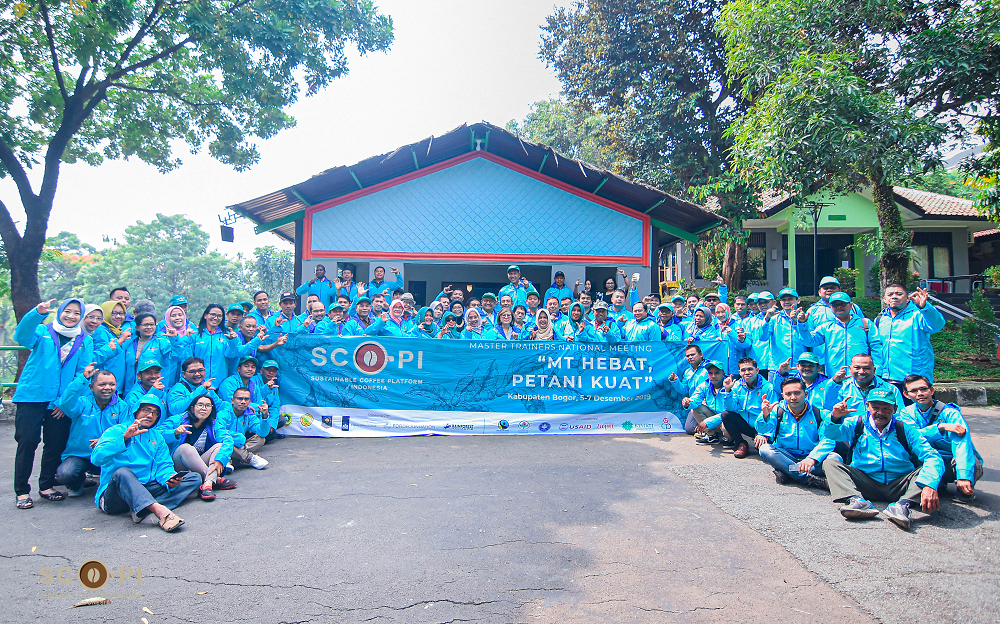REINFORCING CAPACITY OF MT TO BETTER ASSIST FARMERS
Master Trainer (MT) is an essential part of SCOPI’s family and has become one of the key successes in establishing sustainable coffee in Indonesia. Consequently, the capacity of knowledge and skills of the MTs needs to be enhanced as well. One of the efforts done by SCOPI is by organizing capacity training as a part of 2019 MT National Meeting.
Since 2016, MTs who have graduated from ToT (Training of Trainers) held by SCOPI have been providing capacity training and assistance for the coffee farmers in applying good agricultural practices/GAP and post-harvest management. SCOPI has so far produced 190 MTs (147 males and 37 females) throughout 15 different provinces that are the largest producers of arabica and robusta coffee in Indonesia. In order to enhance the capacity of MTs, on 5-7 December 2019 SCOPI held a national meeting of Master Trainers under the tagline “Great MTs, Empowered Farmers” in the District of Bogor, West Java. As many as 76 MTs from 13 provinces or roughly 40 percent from all MTs in total took part in this meeting. The MTs were re-equipped with various skills and knowledge to support them in delivering training activities for coffee farmers. This empowerment was also a follow-up action on the launching of the book National Sustainable Curriculum – Robusta (NSC-R) in 2016 and National Sustainable Curriculum-Arabica (NSC-A) in 2017, which was further revised in mid-2019. This curriculum was also supplemented by the publishing of the Training Management book.
Through this empowerment and the dissemination of newly revised NSC book 2019 edition as well as Training Management book to the MTs, it was expected that the MTs would be able to deliver more effective and well-focused trainings and assistance for the farmers, by taking social, environmental, and economic aspects, as well as gender, regeneration, climate change, agroforestry, and other matters into accounts. Apart from that, the MTs were also expected to be able to conduct observation and evaluation of NSC training implementations.

